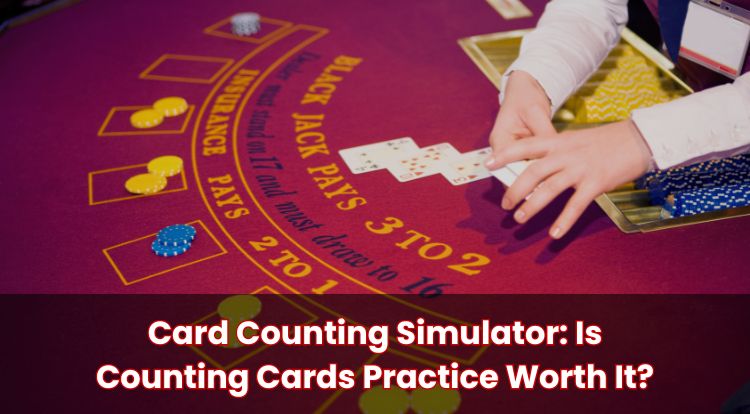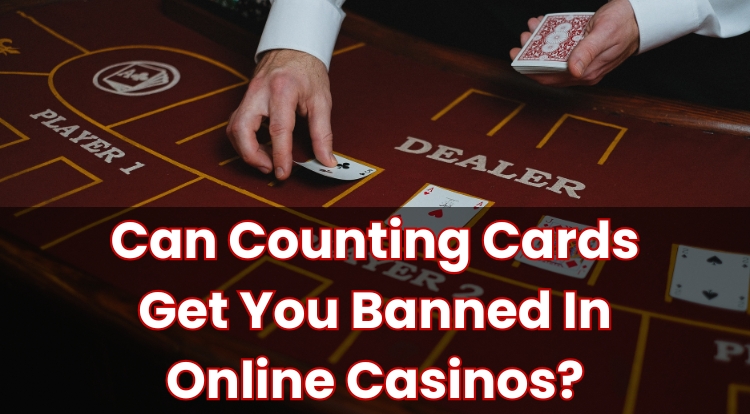Why Is Counting Cards Illegal & What Happens If You’re Caught?
Card counting in blackjack is a strategy often associated with gaining an advantage over the house. While many believe it’s illegal, card counting itself is not against the law in the UK.
However, casinos strongly discourage it and may take action if they suspect a player is using this technique. In this 666Casino blog, we’ll explore why card counting is frowned upon, what consequences you might face if caught, and how UK casinos handle the practice. Understanding these details can help you navigate casino gaming with more clarity.
Is Card Counting Illegal?
Interestingly, card counting is not illegal in the UK. It’s simply a method of keeping track of the high and low cards dealt to try and gain a possible edge. However, the fact that it’s not against the law doesn’t mean that casinos welcome it.
Casinos are private establishments, and they have the right to refuse service to anyone they suspect of card counting. If you’re caught, you may be asked to leave the casino.
In some cases, persistent card counters could find themselves banned from the establishment entirely. Casinos use various tactics to prevent card counting, such as shuffling cards more frequently or using multiple decks, making it much harder to keep track.
Understanding these consequences can help you make more informed decisions when choosing how to play.
Do Casinos Allow Card Counting?
In the UK, while card counting isn’t illegal, it is strongly discouraged by casinos. These private establishments aim to maintain an environment where games are fair for all and any player tactic that disrupts this is unwelcome.
Casinos invest in various preventive measures to deter card counting. You might notice frequent reshuffling of cards or the use of multiple decks, making it harder to keep an accurate count.
If caught card counting, you could be asked to leave the premises. Repeated offences might result in a permanent ban. Being labelled as a card counter by one casino can also lead to difficulties in playing at other casinos, as information may be shared.
Keep in mind that while it may seem like a clever strategy, the intentions of maintaining fair play are paramount in the casino industry. By respecting the rules, you can contribute to a more enjoyable experience for all players.
What Happens If You’re Caught Counting Cards?
Getting caught counting cards can lead to some immediate and serious consequences. Firstly, casino staff may ask you to leave the premises. This is entirely within their rights as private establishments.
If you persist in card counting across multiple visits, you could face a permanent ban from that casino.
In some cases, your details might be shared with other casinos. This could make it difficult for you to play elsewhere. Casinos often employ advanced surveillance to detect card counting, so the chances of getting caught are high.
Understanding these risks can help in making informed decisions about gambling activities. The focus should always be on playing responsibly and enjoying the experience.
Jail For Counting Cards: Could It Happen?
You might wonder if counting cards could land you in jail. In the UK, card counting itself is not a criminal act. It’s simply a strategy some players use in an attempt to track the high and low cards in play.
However, while it’s not illegal, it is against casino policies. If you’re caught, you might be asked to leave, or could even be banned from the casino.
Casinos are private properties, and they reserve the right to bar patrons who they believe disrupt their operations. They may also share information about card counters with other casinos, potentially limiting where you can play in the future.
It’s important to note that any attempt to use external devices or software for counting cards could be considered cheating, which would bring more severe consequences. But simply using your mind to count cards will usually not result in jail time in the UK.
How Do Online Casinos Prevent Card Counting?
Online casinos employ several strategies to make card counting difficult, if not impossible. One of the most effective methods is the use of Random Number Generators (RNGs). These RNGs ensure that each card dealt is completely random, making it nearly impossible to try to predict or keep track of.
Additionally, online casinos often reshuffle the virtual decks after each hand. This means that even if you tried to count cards, the previous cards dealt would have no impact on the next hand.
In live dealer games, casinos might use continuous shuffling machines. These machines continuously shuffle the cards, further preventing any chance of keeping an accurate count.
These measures keep the casino environment fair and enjoyable for all players. Understanding these precautions can give you a better appreciation of the measures in place to ensure a balanced and entertaining online gambling experience.
**The information provided in this blog is intended for educational purposes and should not be construed as betting advice or a guarantee of success. Always gamble responsibly.





